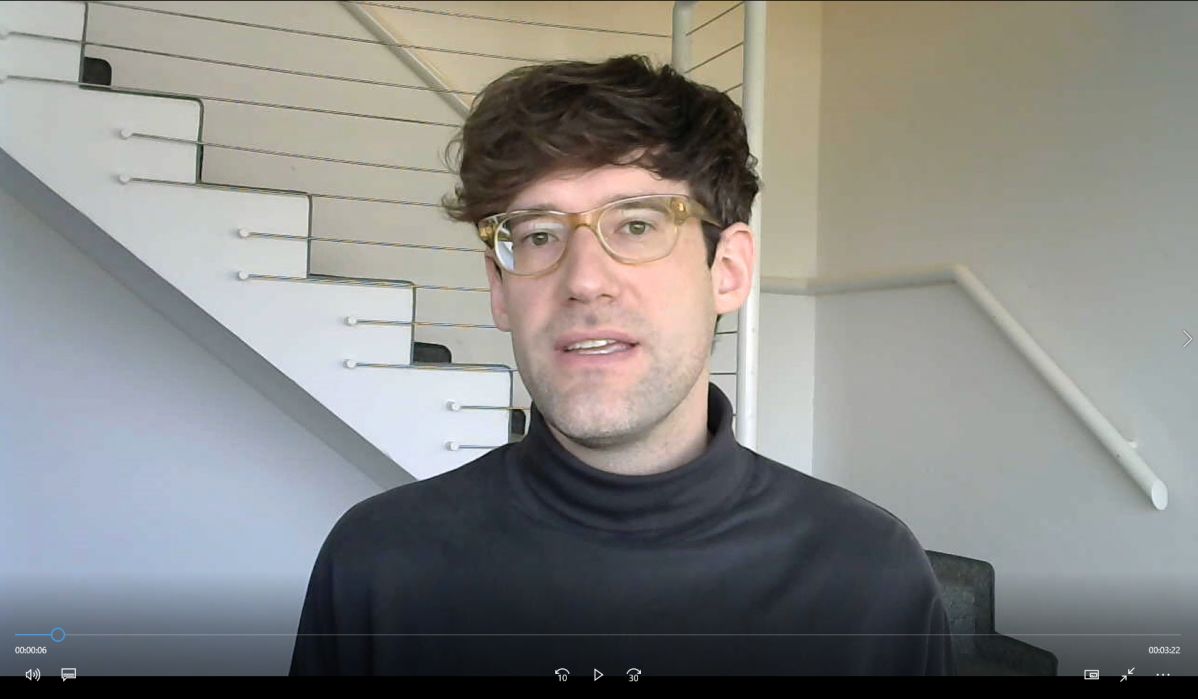‘Cancel Culture’ - New Video and Interview

For the first time, my core ideas on ‘Cancel Culture’ are available in English. This week, two public outreach contributions on the topic of ‘Cancel Culture’ appeared: A video at This is Germany in English and an interview in German as part of an article at die-debatte.org, together with Andrea Geier and Christian Bermes.
Text of the Video: ‘The Real Cancel Culture’
“Cancel Culture” is a conservative and right-wing concept that is used to fend off emancipative politics, especially regarding sexism, racism, homophobia and transphobia. The critique of “Cancel Culture” is quite clever: It presents the demand to end discrimination as rigid leftist moralism that destroys freedom of speech, artistic freedom, and academic freedom, and therefore also the democratic-pluralistic discourse. Thus, “Cancel Culture” turns emancipative politics into a restriction of freedom for everybody. The desire of conservatives to defend their own privileges thereby appears as something different, nicer, broader: the defense of universal rights - and not just their own interests at the expense of minorities. The “Cancel Culture” discourse has been very successful with this universalization strategy: concern about cancel culture now cuts across political camps and is often not even associated with conservative politics.
However, in most cases in which “Cancel Culture” is mentioned, freedom of speech, artistic, and academic freedom are not restricted at all. These freedoms are primarily defensive rights against the state. They do not mean that there are no norms and rules in public debate, culture, and academia. Rules do exist, of course, and it goes without saying that changing them to make them less discriminatory also means that the currently privileged lose discursive power, airtime, or funding. After all, the current distribution of power is based on the structural and brutal exclusion of the perspectives of many minorities; they are effectively canceled from the outset. The pluralization and democratization of discourses makes it necessary to redistribute resources so that the freedom of the privileged is reduced in order to establish freedom for all. And such improvements in norms, rules, and structures don’t restrict freedom of speech, artistic, and academic freedom.
However, restrictions of these freedoms do exist, but they aren’t usually criticized by the conservative and right-wing discourse on “Cancel Culture”. In England and France, the government is currently trying to prevent academic research on anti-racist and post-colonial theories; in Germany, the Bundestag, with its BDS resolution, and following it, the German Rectors’ Conference, are powerfully intervening in an ongoing public debate and restricting academic freedom. Because here the state intervenes with enormous symbolic, financial and juridical power, freedom rights are actually threatened in these cases. If you want to hold on to the term, you could say: this is the real “Cancel Culture”.
Academic Basis
These public outreach contributions are based on the following academic article:
Schubert, Karsten (2020): Umkämpfte Kunstfreiheit - ein Differenzierungsvorschlag. In: Zeitschrift für Menschenrechte (2), 195–204.
Final Manuscript
Academia.edu
Related Posts
- Feuilleton Article: More Cancel Culture Please! (Sächsische Zeitung), 8. January 2021
- New Article: Democratization Through 'Cancel Culture' — Three Levels of Artistic Freedom, 21. April 2023
- Identity Politics, Cancel Culture, Net Feminism: Lectures and Discussion Events in the Winter Semester, 6. December 2021
- Video online: 'Cancel Culture. Identity politics as a threat to artistic freedom?' at the Kulturpolitische Gesellschaft, 18. May 2021
- New Publication: Defending Plurality. Four Reasons Why We Need to Rethink Academic Freedom in Europe, 19. April 2021